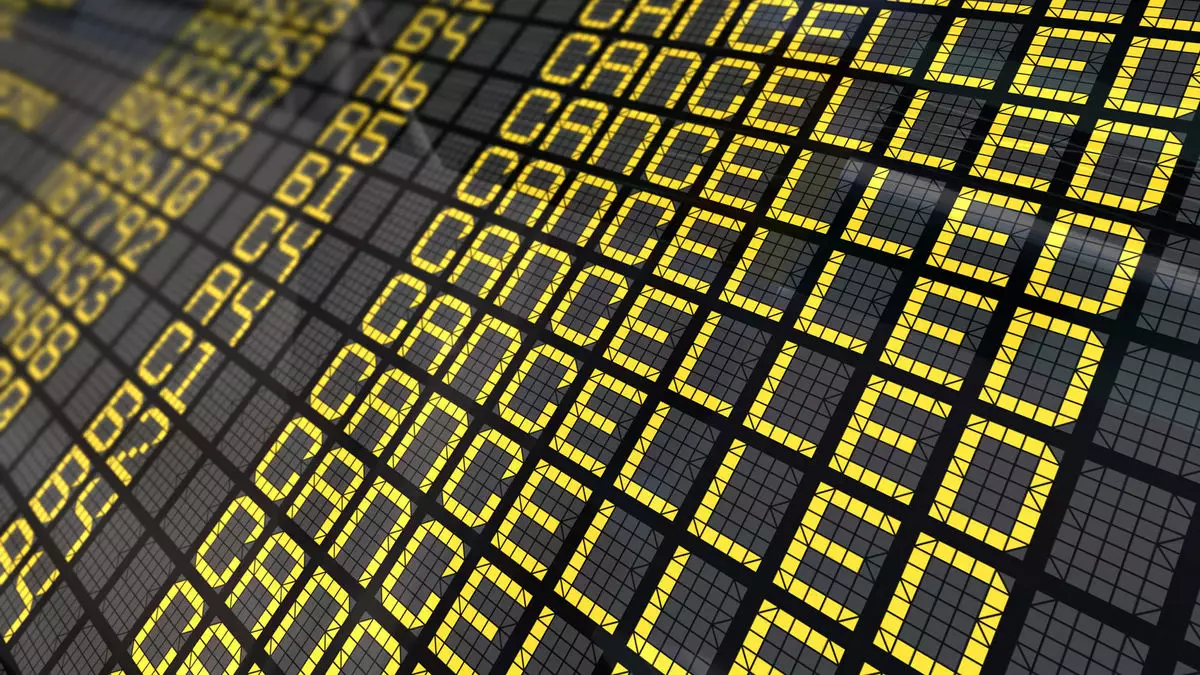The airline industry has long been a central part of the American transportation landscape, yet it has often been marked by dissatisfaction regarding passenger treatment during delays and cancellations. In a recent initiative declared by the Transportation Department (DOT) on December 5, there is a potential shift toward enhancing consumer rights, particularly concerning compensation following airline-caused delays and cancellations. This proposal marks a significant response to the challenges faced by airline passengers, demonstrating an evolving understanding of the responsibilities airlines hold in ensuring customer satisfaction.
The DOT’s proposal obligates airlines to provide financial compensation to passengers affected by cancellations and delays lasting over three hours, provided these issues stem from the airlines’ operational failures rather than external influences like inclement weather. This marks a move towards holding airlines accountable for the experiences of their passengers. The framework for compensation suggested by the DOT includes a tiered payment structure that starts between $200 and $300 for delays lasting three to six hours, escalating to between $375 and $525 for delays extending beyond six hours, and reaching up to $775 for prolonged disruptions.
The call for public feedback on these measures indicates a desire for transparency and input before finalizing any regulations. This participatory approach may foster greater acceptance of the measures among stakeholders. By contemplating different compensation scales based on airline size and varying timelines for notifications to passengers, the DOT is also weighing the operational realities faced by smaller carriers against the responsibility they have to their customers.
Pete Buttigieg, Secretary of the DOT, emphasized the necessity for robust passenger protections in his statement, linking the need for such regulations to the financial assistance received by airlines during the COVID-19 pandemic. With air travel experiences reaching unprecedented levels post-pandemic, it is crucial that the industry learns from past crises. The intent behind the proposed regulations appears to be driven by a broader commitment to improve the flying experience and uphold the rights of consumers, aligning with a customer-first approach that has gained momentum in diverse sectors.
Although the proposal is not unexpected—having been under consideration since May of the previous year—the accelerated timeline signals a pressing need to address ongoing frustrations within the industry and among the public. The effectiveness of this initiative remains contingent upon the regulatory landscape of the incoming administration, as subsequent changes could reshape its trajectory.
Unsurprisingly, airlines have voiced their opposition to the proposal. Airlines for America (A4A), the leading trade association for the airline industry, expressed concern that the mandated compensation could lead to higher ticket prices, ultimately affecting price-sensitive travelers. They argue that current practices already provide considerable support to passengers during delays and cancellations, such as offering automatic refunds and covering expenses related to food and accommodations in certain situations.
However, such opposition might overlook the consumers’ mounting expectations for a more equitable travel experience. As air travel becomes increasingly accessible and competitive, airlines may need to rethink their service models to enhance customer fidelity.
Moreover, comparing the U.S. proposal with compensatory regulations in other countries indicates that the U.S. is behind in providing adequate protections. In regions such as Canada, the U.K., and the EU, stricter compensation requirements are already in place, making the U.S. stance appear outdated. This discrepancy suggests that the administration’s proposal may be a necessary move to align more closely with international standards.
As the DOT moves to establish clear guidelines about duty of care and the classification of delays with multiple contributing factors, the push for better consumer protection appears to be gaining momentum. The importance of traveler awareness in understanding their rights is paramount; passengers will be better positioned to advocate for themselves if they understand the compensation structures put in place.
The data released by the DOT indicating that over 60% of significant domestic delays cover airline faults highlights the need for accountable practices. Implementing stricter compensation measures could serve as a catalyst for increased operational efficiency amongst airlines, as the cost of failure would inherently incentivize better management of schedules and customer service.
In sum, the transition toward protecting passenger rights in the face of airline-triggered disruptions is a vital endeavor, with the potential to reshape the industry’s landscape markedly. As this discussion unfolds, observers from both the public and private sectors must engage actively to ensure a balanced approach that benefits air travelers while considering the sustainability of airline operations in the evolving market.

